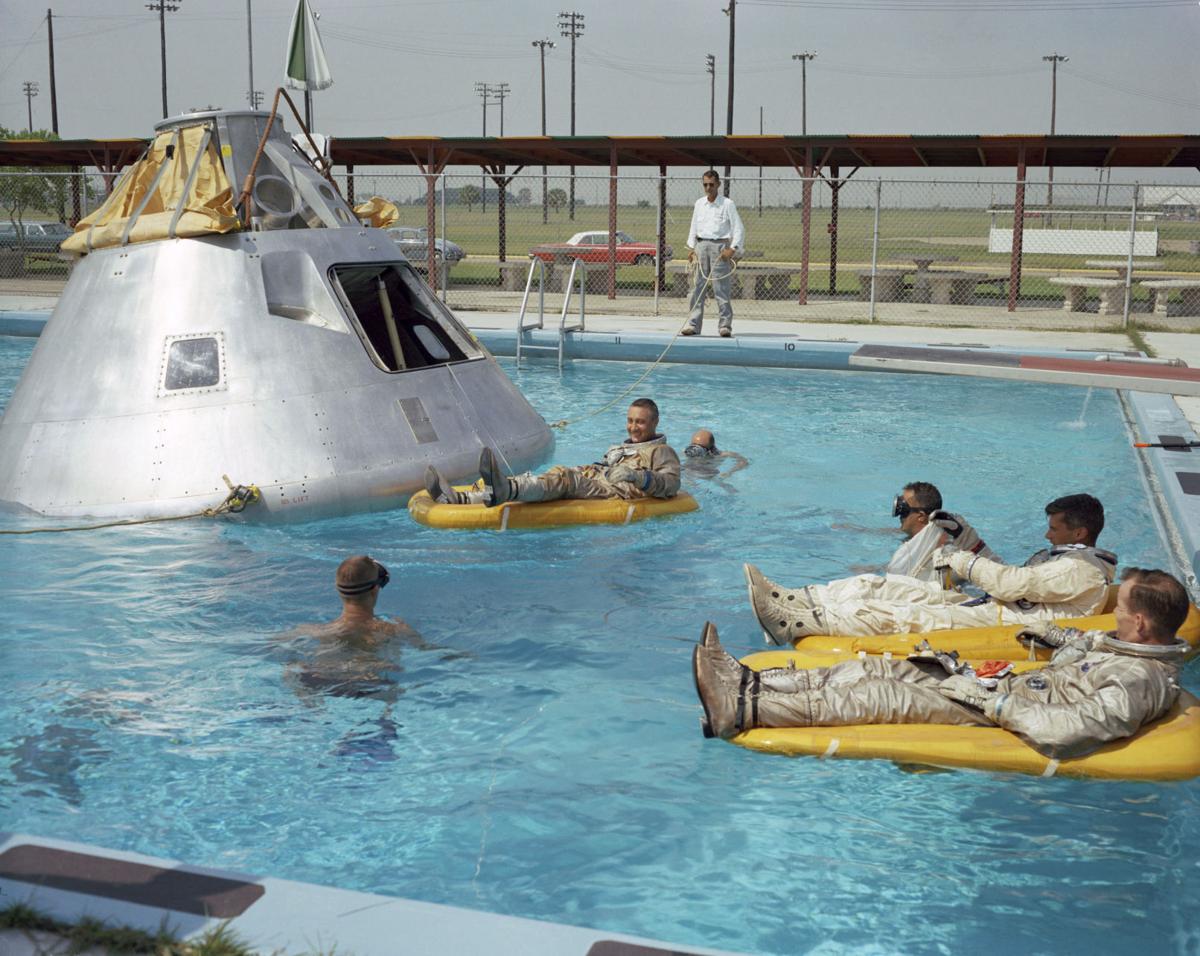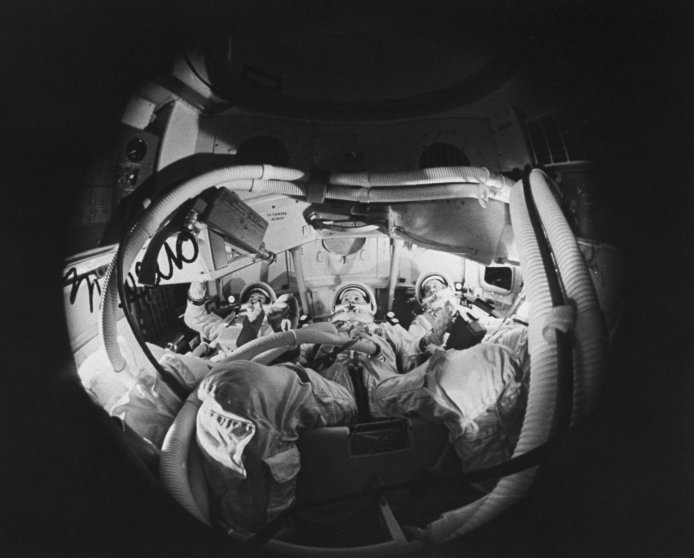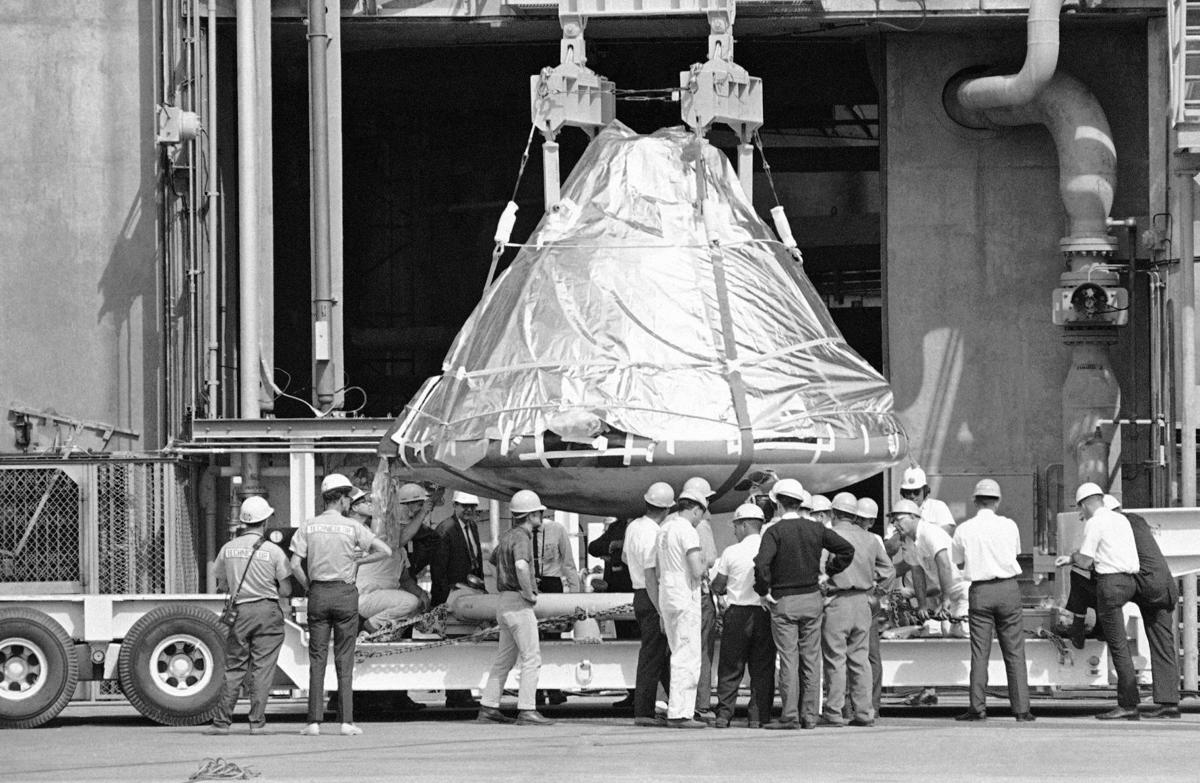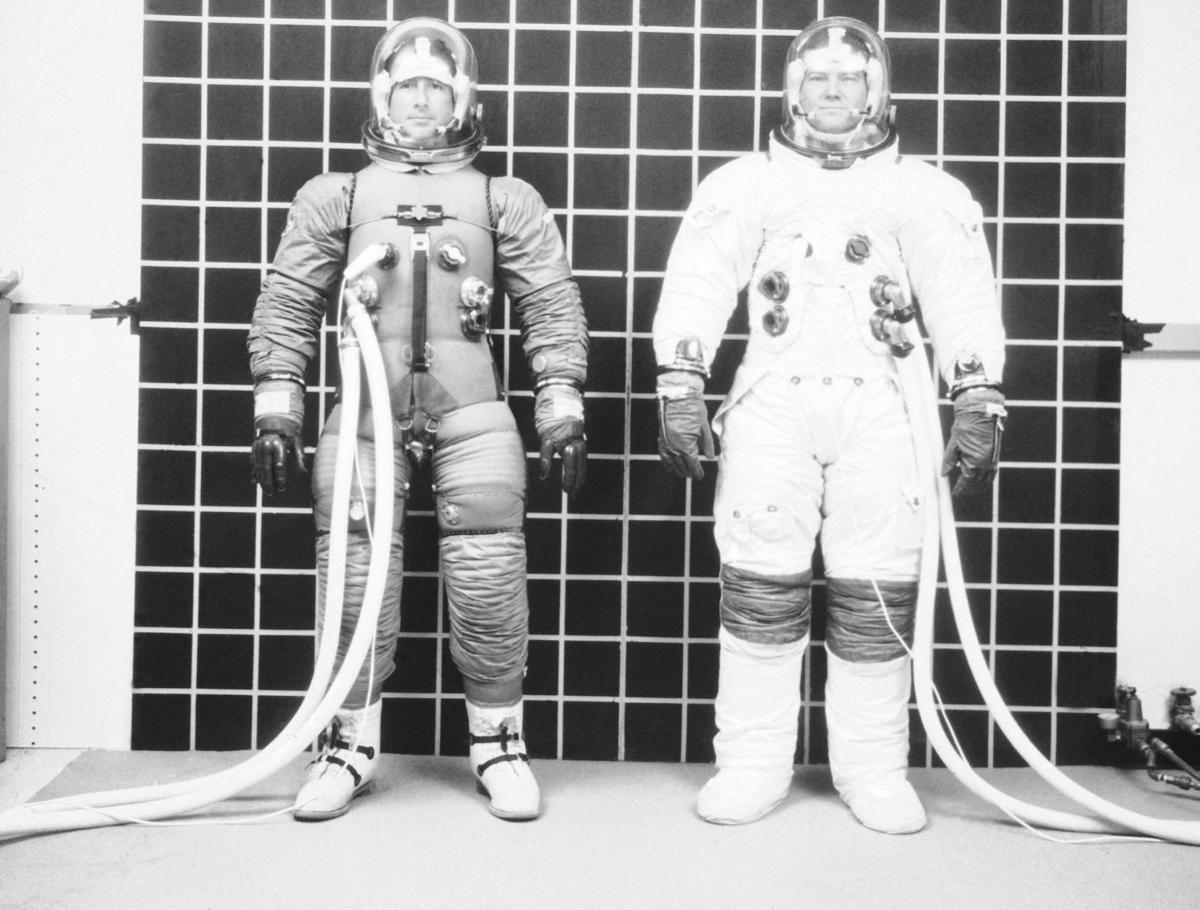
Die erste NASATragödie Vor 50 Jahren brach Feuer in Apollo 1 aus heise online
This photograph shows Apollo 1's Command Module a day after the fire that took the lives of astronauts Lt. Col. Virgil "Gus" Ivan Grissom, Lt. Col. Edward Higgins White II, and Lt. Cdr. Roger.

APOLLO 1 ASTRONAUTS MISSION SIM GRISSOM WHITE CHAFFEE NASA Photo 8.5"x11" eBay
The Apollo program changed forever on Jan. 27, 1967, when a flash fire swept through the Apollo 1 command module during a launch rehearsal test. Despite the best efforts of the ground crew, the.

Remembering the tragic fire that claimed the crew of NASA's Apollo 1 in 1967
Ultimately, however, the Apollo 1 fire probably saved NASA's lunar ambitions. The fire forced a hard reset of a space program that had been rushing headlong toward the Moon, but had lost its way.

Photos Apollo 1 crew and fire in 1967 National News
A three-month delay in the delivery of a newly designed spacecraft had pushed back the Apollo program's first manned mission to February 1967, and repeated testing failures plagued the most.

The Apollo 1 Launchpad Fire Remembering Grissom, White and Chaffee
As the years and decades rolled by, Apollo 1 became a mere footnote in space history. Chaffee's daughter, Sheryl, who retired last month after working at Kennedy for 33 years, recalls having to.

The Tragedy Of Apollo 1 And The Lessons That Brought Us To The Moon
Johnson Space Center. Jan 19, 2022. Article. With President John F. Kennedy's end-of-the-decade target of landing a man on the Moon approaching, NASA set ambitious goals for 1967 to human-rate the Saturn IB and Saturn V rockets and to test the Apollo Command and Service Modules (CSM) and the Lunar Module (LM) - seven Saturn launches in all.

The Apollo 1 Tragedy 50 Years Later Paste Magazine
Tragically, however, the spacecraft was destroyed in a cabin fire during a launch pad test 47 years ago on 27 January 1967. Each of the three astronauts had been influential during NASA's space exploration program in the run-up to Apollo 1. Gus Grissom was the second American in space aboard Liberty Bell 7, the second Project Mercury flight.

Hundreds honor 3 astronauts lost in Apollo fire 50 years ago Fox News
Radio Moscow. The nation's Moon landing program suffered a shocking setback on Jan. 27, 1967, with the deaths of Apollo 1 astronauts Virgil I. "Gus" Grissom, Edward H. White, and Roger B. Chaffee in a flash fire aboard their spacecraft during a ground test on the launch pad. America honored the fallen heroes in funerals with full military.

Pin on Great old photos
NASA's last moonbound program for astronauts lifted off under the shadow of a fatal incident on the Apollo 1 spacecraft, 55 years ago today (Jan. 27). Apollo 1 was expected to fly to Earth orbit.

Photos Apollo 1 crew and fire in 1967 National News
A marina building suffered damage after severe weather in Bay County, Florida, on Tuesday, Jan. 9, 2024. (Bay County Sheriff's Office/Facebook) A Florida Panhandle marina was destroyed near Panama City Beach, and many boats were flipped during the storm. Photos the Bay County Sheriff's Office shared show the crumpled business in the dark.

What the Deadly NASA Apollo 1 Capsule Accident Taught Us The Drive
Apollo 1. On Jan. 27, 1967, tragedy struck on the launch pad at Cape Kennedy during a preflight test for Apollo 204 (AS-204). The mission was to be the first crewed flight of Apollo, and was scheduled to launch Feb. 21, 1967. Astronauts Virgil Grissom, Edward White and Roger Chaffee lost their lives when a fire swept through the command module.

History's 10 Worst Engineering Disasters Part 1
Apollo 1, initially designated AS-204, was planned to be the first crewed mission of the Apollo program,. As the smoke cleared they found the bodies, but were not able to remove them. The fire had partly melted Grissom's and White's nylon space suits and the hoses connecting them to the life support system. Grissom had removed his restraints.

50 años de la primera tragedia de la NASA Ciencia EL PAÍS
During a preflight test on January 27, 1967 for what was to be the first crewed Apollo mission, a fire claimed the lives of three U.S. astronauts; Gus Grissom, Ed White and Roger Chaffee. After the disaster, the mission, which has previously been referred to as Apollo-Saturn 204 (AS-204), was officially designated Apollo 1, which was name for.

‘Fire in the spacecraft!’ The Apollo 1 tragedy that killed three astronauts in 1967
The nation's Moon-landing program suffered a shocking setback on Jan. 27, 1967, with the deaths of Apollo 1 astronauts Virgil I. "Gus" Grissom,. Later that night, after photographers fully documented the scene, recovery crews removed the astronauts' bodies from the spacecraft and took them to a nearby medical facility. U.S. Air Force.

Photos 50th anniversary of the Apollo 1 tragedy Tucson history and Stories from the Star's
Peregrine 1, which aimed to become the first commercial space probe to make a soft landing on the moon, suffered a "critical loss of propellant" hours after liftoff on Monday owing to an.

Remembering Apollo 1 Jan. 27, 1967
Once it finally did (6 hours after the accident), it took and an hour and a half for the bodies of Gus Grissom, Ed White, and Roger Chaffee to be recovered from the burned out husk of Apollo 1.